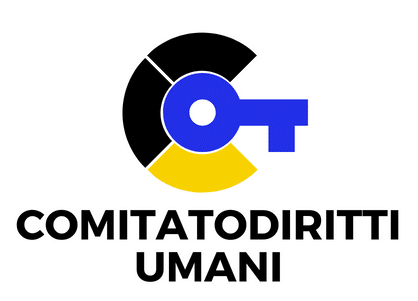Are There Effective Nutritional Strategies to Enhance Recovery from Concussions in Athletes?

As you progressively invest your time and energy into sports, you need to be aware of the potential risks associated with each discipline. High-impact sports often carry the risk of causing injuries, including concussions. A concussion is a form of traumatic brain injury usually caused by a blow to the head. Although the effects are often temporary, they can include headaches, problems with concentration, memory, balance, and coordination.
In athletes, the recovery process after a concussion is of critical importance. The reason is simple: the sooner you recover, the sooner you can return to the field. As we dive into this complex subject, we’ll explore the role of nutrition in concussion recovery and look into scientific studies that have investigated this matter.
A découvrir également : What Is the Impact of Community-Scale Composting on Public Health and Sustainability?
The Role of Nutrition in Athlete’s Recovery from Concussions
The part we’re looking at here is the correlation between nutrition and concussion recovery. As you know, food is the primary source of energy for the human body. However, its role extends beyond providing energy. It also contributes to various bodily functions like repairing damaged tissues, maintaining the immune system, and supporting cognitive functions.
Studies have shown that a balanced diet can help speed up the recovery from various injuries, including concussions. Next, we’ll present some nutritional strategies that might enhance the recovery process after a concussion.
Cela peut vous intéresser : Can Exoskeleton Technology Assist in Stroke Rehabilitation by Improving Gait and Balance?
The Importance of Protein in Recovery
Protein plays a key role in the recovery from any injury, including concussions. This nutrient is essential for repairing damaged tissues, making new cells, and producing enzymes and hormones. When we talk about concussions, the brain is the organ that suffers the damage.
Research has shown a strong correlation between protein intake and the rate of concussion recovery. One study published in the Journal of Neurotrauma found that a diet high in protein can enhance brain repair after a concussion. The study concluded that a high-protein diet could reduce the symptoms and shorten the recovery time.
The Benefits of Creatine in Recovering From Concussions
Creatine is a substance found naturally in muscle cells. It helps your muscles produce energy during heavy lifting or high-intensity exercise. It’s worth noting that creatine is also found in the brain, where it plays a role in mental function and brain health.
A study published on CrossRef has shown that creatine supplementation can reduce the severity and duration of concussive symptoms. The study indicated that creatine can support the brain’s energy metabolism, which is often disrupted after a concussion.
Vitamins and their Role in Concussion Recovery
Vitamins are essential for maintaining optimal health and supporting various bodily functions. Recent studies have identified several vitamins that can enhance the recovery process after a concussion.
Vitamin B12, for instance, contributes to the health and function of neurons and can accelerate brain recovery post-injury. A paper published in the Journal of Neurotrauma showed that Vitamin B12 supplementation could reduce neurological deficits after a traumatic brain injury.
Vitamin D, on the other hand, is known to play a role in brain development and function. A study published on CrossRef pointed out that Vitamin D deficiency might prolong the recovery process after a concussion. The study recommended regular intake of Vitamin D to enhance recovery and prevent long-term complications.
The Role of Hydration in Concussion Recovery
Just like nutrition, hydration is also critical during the concussion recovery process. Dehydration can exacerbate concussion symptoms like headaches, fatigue, and dizziness. Additionally, evidence from studies indicates that maintaining proper hydration can also support brain function and aid in recovery.
In conclusion, you can see that a strategic approach to nutrition can significantly impact recovery from a concussion. By considering the right balance of protein, creatine, vitamins, and hydration, along with regular medical supervision, one can potentially accelerate the recovery process and return to sport faster. However, it’s important to remember that these nutritional strategies should be part of a comprehensive treatment plan that includes rest, physical therapy, and cognitive rest.
Omega Fatty Acids and Their Significance in Concussion Recovery
Omega fatty acids, a type of polyunsaturated fat, have a critical role in supporting brain health. They are essential nutrients, meaning our bodies cannot produce them, and we must intake them through our diet. Omega-3s and Omega-6s are the two types of omega fatty acids that contribute significantly to brain function and development.
Omega-3 fatty acids, specifically DHA (docosahexaenoic acid), are abundant in the brain and are vital for maintaining the integrity of neuronal membranes. A study found on Google Scholar suggests that DHA supplementation after a traumatic brain injury can enhance neuroplasticity and improve cognitive function, aiding in a faster recovery.
Omega-6 fatty acids, such as arachidonic acid (AA), also have a role in brain health. Although they are usually associated with inflammatory processes, they are also involved in the regulation of brain cell function and growth. A study on CrossRef PubMed revealed that arachidonic acid plays a crucial role in neuronal repair post-injury.
Incorporating more omega fatty acids into an athlete’s diet following a concussion could potentially expedite recovery, according to a systematic review found on Sports Med Preprints Org. The review emphasized that omega fatty acids should be an integral part of post-concussion nutritional strategies.
The Interplay of Energy Intake and Recovery from Concussions
Energy intake is another important aspect to consider in the realm of concussion recovery. After a concussion, the brain requires additional energy to initiate repair processes. Therefore, ensuring adequate calorie intake can support the healing process.
According to a paper found on Google Scholar, increasing energy intake following a traumatic brain injury can help meet the increased metabolic demands of the brain, enhancing its recovery. Consuming a diet rich in complex carbs can provide a steady energy supply to the brain, supporting its function and repair.
Moreover, inadequate energy intake can lead to muscle mass loss, which is detrimental for athletes. Therefore, maintaining a balanced energy intake not only supports brain recovery but also helps preserve muscle mass.
In Conclusion: The Impact of Nutritional Strategies on Concussion Recovery
In conclusion, the complex nature of concussions mandates a comprehensive recovery approach. Incorporating nutritional strategies can significantly influence the recovery process, as they support various aspects of brain health. A diet rich in proteins, creatine, vitamins, omega fatty acids, and adequate hydration, coupled with balanced energy intake, can potentially enhance brain repair and function.
However, every concussion is unique, and what works for one athlete may not work for another. Therefore, these nutritional strategies should be tailored to each athlete’s individual needs and should always be guided by a health professional.
More research is needed to fully understand the impact of nutrition on concussion recovery. Nevertheless, the findings so far are promising and show the potential of nutrition in assisting athletes’ recovery from concussions. Despite the challenges, as we continue to advance our knowledge and understanding, we can eventually optimize the recovery process for athletes suffering from this common form of brain injury. It’s not just about getting back into the game; it’s about ensuring long-term health and well-being.
